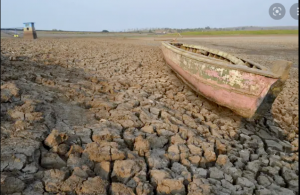Editorial: Fighting Climate Change Means Fighting Water Insecurity
Major emitters of greenhouse gas should be held accountable
Major emitters of greenhouse gas should be held accountable

Published in The Express Tribune, Editorial, 06-06-22
A report published by the White House highlights the rising trends of sub-national inter-state water disputes. This leaves the Indo-Pak Indus Waters Treaty in a precarious state due to increasing pressures from regional population growth and disagreement over hydropower use, the report indicates. It is predicted that by 2040, many countries in Asia will face acute water scarcity.
Western countries, especially the US, have cunningly tried to control climate change narratives. They portray the climate crisis as a separate phenomenon independent of themselves and try to shift global attention to nuances such as ‘internal disputes’. The fact remains that the US is the second largest emitter of carbon. Even though India comes at 3rd place, there is a significant difference as the US contribution is 14.02% while India emits 7.09% of the total share. This is important as the water crisis is a direct consequence of climate change. The lives of 270 million people in South Asia are affected due to melting glaciers and extreme droughts. Yes, the proliferation of urban infrastructure, the heavy demand of the agricultural industry, and the mismanagement of water are all factors that exacerbate the water crisis, but they are not the ultimate reason.
Fighting climate change means fighting water insecurity. South Asian countries must chart out water conservation plans and ensure that water is distributed equitably. Since the climate crisis is global, collective action and advocacy is required by countries most affected by it. Major emitters of greenhouse gas should be regulated and held accountable. The UN and other international communities can respond by initiating a global pact in which countries responsible for climate change need to pay reparations to countries that are suffering. This will not only help vulnerable countries fight back but also act as a form of deterrence for accountable countries.







